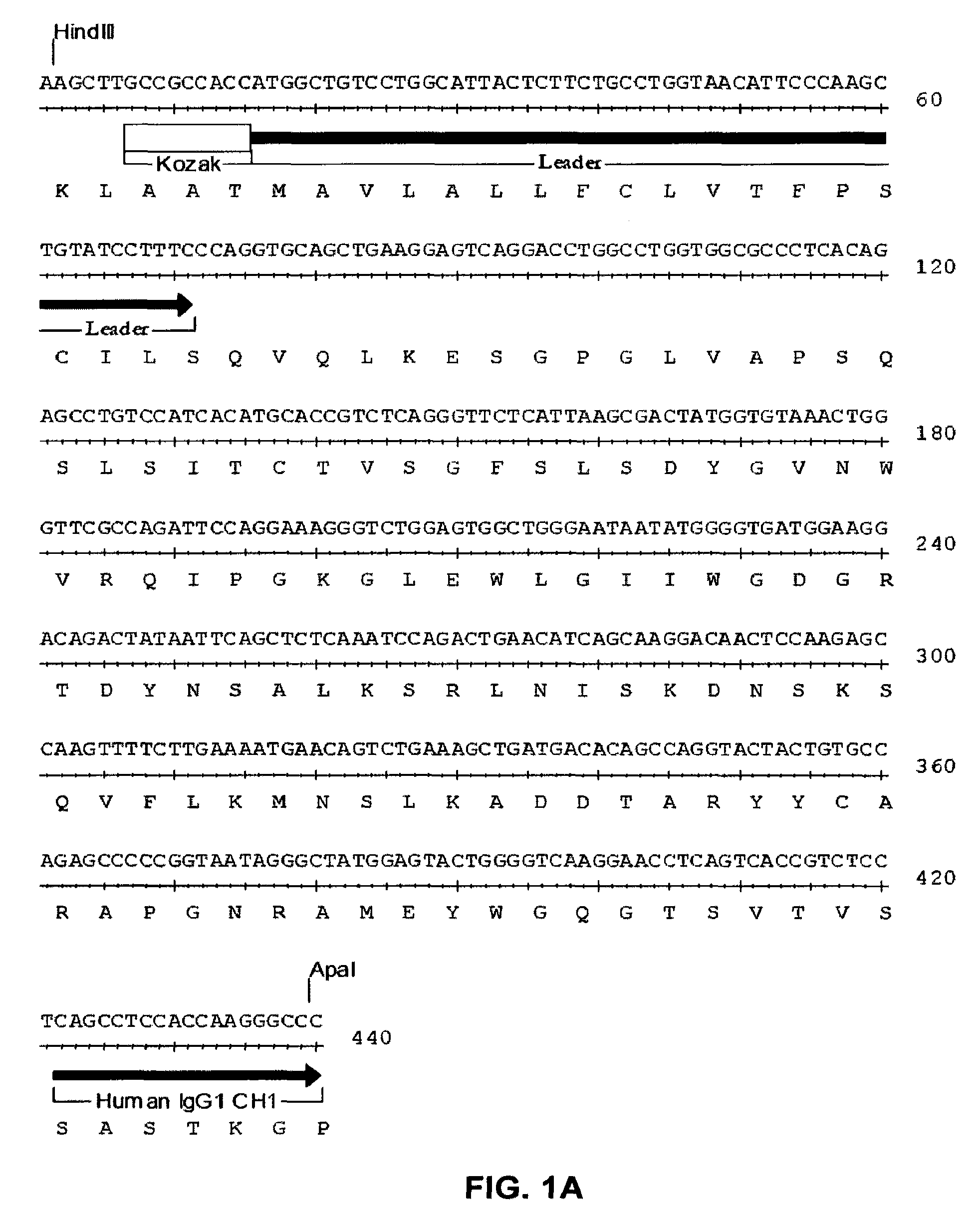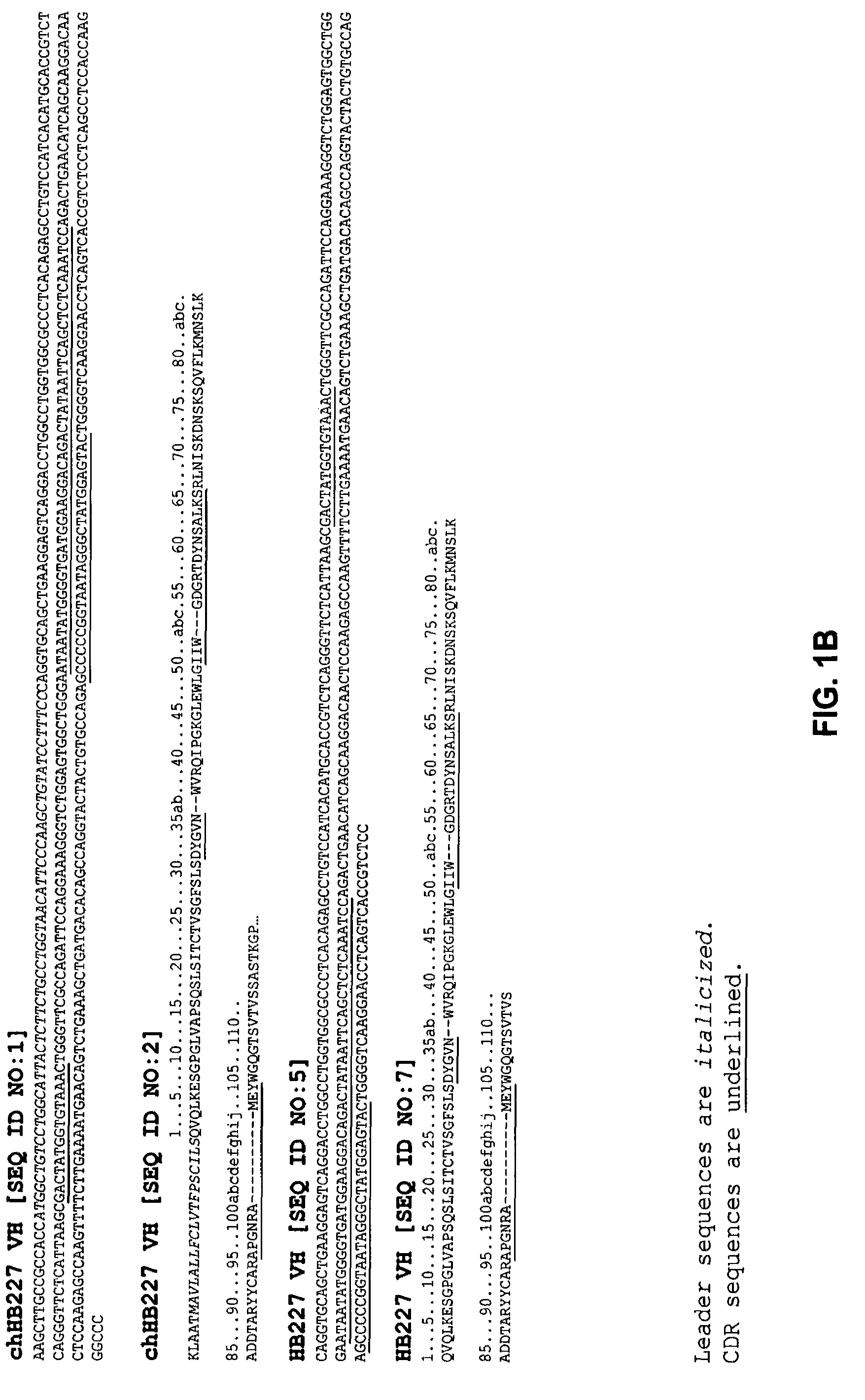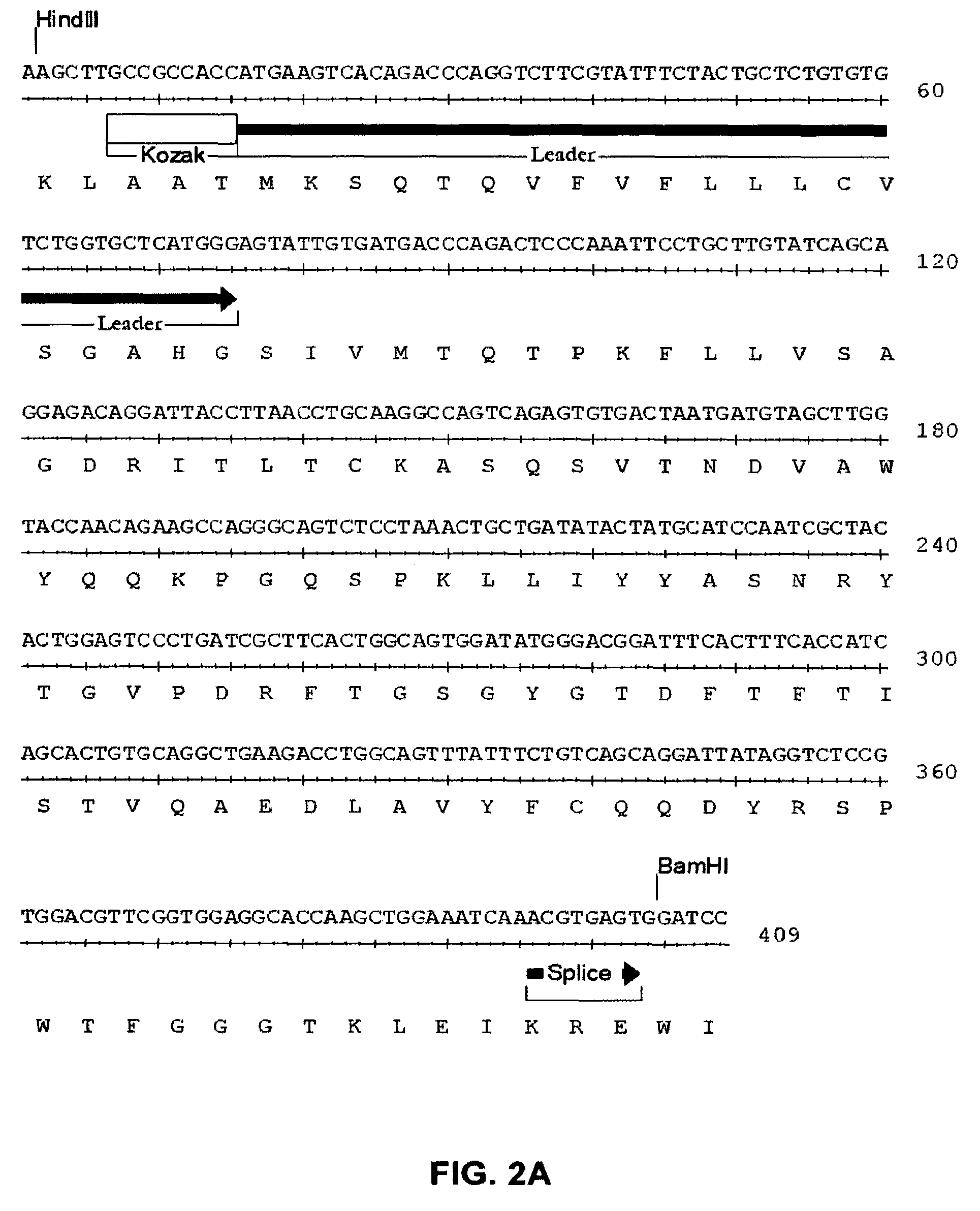Humanized anti-CD22 antibodies and their use in treatment of oncology, transplantation and autoimmune disease
an anti-cd22 antibody and humanized technology, applied in the field of humanized anti-cd22 antibodies and their use in the treatment of oncology, transplantation and autoimmune diseases, can solve the problems of significant morbidity and disability, rapid grafting, and less developed current therapeutic agents and strategies for targeting humoral immunity
- Summary
- Abstract
- Description
- Claims
- Application Information
AI Technical Summary
Benefits of technology
Problems solved by technology
Method used
Image
Examples
Embodiment Construction
[0092]The present invention relates to human, humanized, or chimeric anti-CD22 antibodies that bind to the human CD22 antigen, as well as to compositions comprising those antibodies. In certain embodiments the human, humanized, or chimeric anti-CD22 antibodies of the invention are those that mediate antigen-dependent-cell-mediated-cytotoxicity (ADCC). In particular embodiments, the present invention is directed toward compositions comprising human, humanized, or chimeric anti-CD22 antibodies of the invention are of the IgG1 and / or IgG3 human isotype, as well as to human, humanized, or chimeric anti-CD22 antibodies of the IgG2 and / or IgG4 human isotype, that preferably mediate human ADCC, CDC, and / or apoptosis.
[0093]The present invention provides chimeric and humanized versions of anti-CD22 mouse monoclonal antibody, HB22.7. In one embodiment, the humanized anti-CD22 antibodies bind to human CD22 with an affinity comparable to that of the mouse monoclonal antibody designated HB22.7 o...
PUM
 Login to View More
Login to View More Abstract
Description
Claims
Application Information
 Login to View More
Login to View More - R&D
- Intellectual Property
- Life Sciences
- Materials
- Tech Scout
- Unparalleled Data Quality
- Higher Quality Content
- 60% Fewer Hallucinations
Browse by: Latest US Patents, China's latest patents, Technical Efficacy Thesaurus, Application Domain, Technology Topic, Popular Technical Reports.
© 2025 PatSnap. All rights reserved.Legal|Privacy policy|Modern Slavery Act Transparency Statement|Sitemap|About US| Contact US: help@patsnap.com



